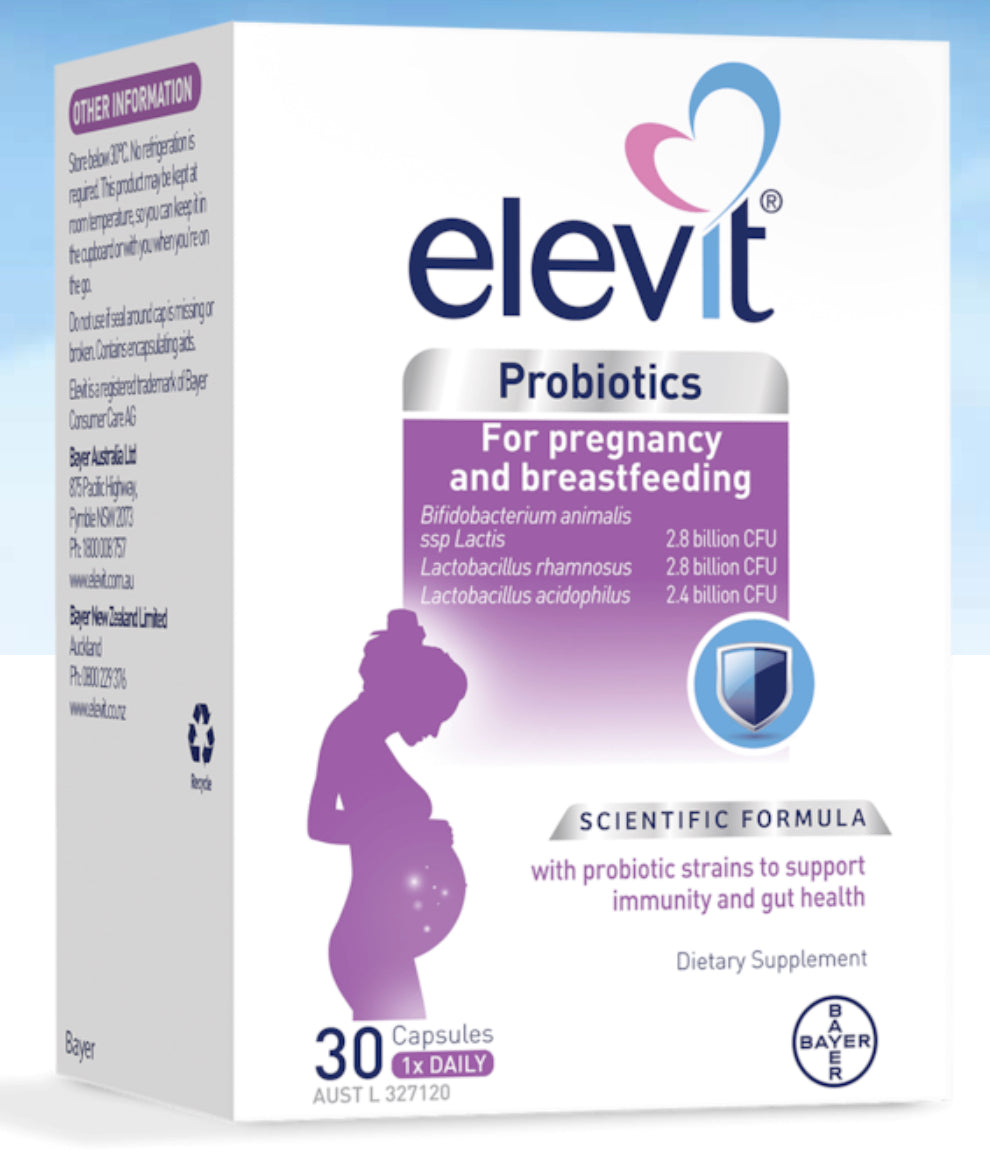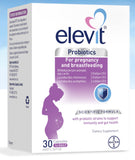
Elevit Probiotics For Pregnancy and Breastfeeding 30 Capsules


Description
xElevit Probiotics For Pregnancy and Breastfeeding 30 Capsules
Elevit Probiotics offer a scientific formula with probiotic strains to support immunity and gut health during pregnancy and breastfeeding.
What are the key benefits of Elevit Probiotics?
- Immune system function
- Gut health
- Nutrient uptake
Why choose Elevit Probiotics?
- Elevit Probiotics are from the makers of Elevit with Iodine, New Zealand’s No.1 pregnancy multivitamin* and experts in pregnancy nutrition
- Elevit Probiotics supports gut health and immunity throughout all stages of the pregnancy journey reassuring you that you are doing the best for your growing baby
- Suitable for pregnant and breastfeeding women
- Doesn’t need to be kept in the fridge
- This is an optional add-on for Elevit with Iodine pregnancy multivitamin
*Leading New Zealand pregnancy multivitamins as at March 2020
What is the dosage?
Elevit Probiotics are a once daily supplement that can be taken at any time of the day with food.
What pack sizes are available?
Elevit Probiotics are available in 30 capsules.
What ingredients does Elevit Probiotics contain?
| Each capsule contains: | |
|---|---|
| Bifidobacterium animalis ssp lactis | 2.8 billion |
| Lactobacillus acidophilus | 2.4 billion |
| Lactobacillus rhamnosus | 2.8 billion |
What are probiotics?
Probiotics are live microorganisms (bacteria and yeast) that are good for you. Probiotics are often called “good” or “helpful” bacteria as they support health in different ways, such as helping your immune system function properly, promoting digestive system function and aiding nutrient absorption.
The body is home to approximately 100 trillion microorganisms, known as the microbiome. Most of these microbes (mainly bacteria) live in the gut.
What is the microbiome?
The human body contains trillions of microbes that make up the microbiome and assist in keeping you healthy – probiotics can play a supportive role in these processes. Humans have a unique microbiome and this is not static – it is determined by geography, health status, stress, diet, age, gender and other environmental factors.
Impact of the first 1000 days on the microbiome?
The first 1000 days of a baby's life, from conception, are a critical period for their long-term health. Contact with beneficial bacteria early in life can support the development and maturation of the immune system.
The natural makeup of the mother’s microbiome changes during pregnancy and is extremely influential. Factors like whether a baby was born vaginally or via C-section, at home or in hospital, can affect the composition of the baby’s microbiome. By the age of three, a child’s microbiome starts to resemble the microbiome of an adult.
- Choosing a selection results in a full page refresh.








